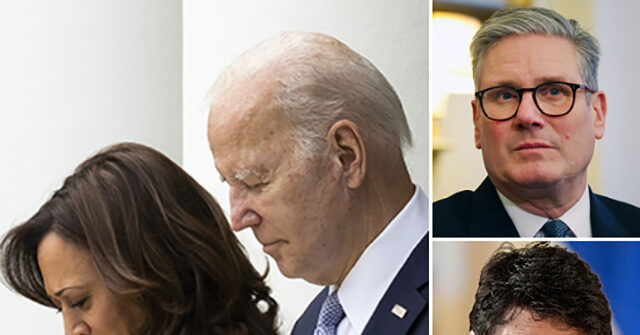In recent times, ordinary citizens in Canada, Britain, and the United States have made significant strides in challenging established pro-migration policies, aiming to curb the influx of workers—both blue-collar and white-collar—who have profoundly affected their economies and cultures. The United Kingdom recently highlighted this shift, with Prime Minister Keir Starmer’s commentary on the government’s past approach to immigration, which he accused of fostering a chaotic and multicultural economy that undermines national cohesion. Starmer’s government, increasingly unpopular, is attempting to revive its standing with proposals to reform immigration policy, quietly abandoning the open-border approach that has characterized British politics for decades. He emphasized the crucial need for addressing skill shortages and the employment challenges faced by young people rather than relying solely on immigration as a solution.
This trend is reflected in several countries beyond the United Kingdom, including the United States, where a series of political changes have occurred across various nations, including renovations in immigration approaches influenced by U.S. policies. Commentators have pointed out that the dialogue in U.S. politics on immigration often drives changes internationally, as seen in the rhetoric of leaders like Starmer, who draw from populist sentiments to engage their constituents. While anti-migration sentiments are taking root in some nations, several other European countries—such as Germany, France, and Australia—continue to maintain the status quo of elite-directed migration policies, often marginalizing populist parties or limiting their influence through superficial compromises.
Countries like Ireland have exhibited contradictory actions with their governments promising to expel order asylum seekers while simultaneously increasing the number of legal migrants. Within the U.K., the very party now promoting immigration cuts had previously instigated significant immigration waves. Starmer’s recent decision comes against the backdrop of mounting evidence of the negative impacts that this migration influx has had on economic stability, social cohesion, and the struggles of native populations. The alarming statistics regarding high migration rates compared to the country’s native birth rates raise pressing questions about the sustainability and inclusivity of such immigration policies in fostering a unified society.
Moreover, the problems linked to high immigration are not merely abstract; they have tangible consequences, including skyrocketing housing costs, diminished quality of life, and social unrest. The policies that allowed for significant migration in prior decades have resulted in stagnant productivity growth alongside soaring inequality and poverty levels. This has led to widespread discontent amongst citizens and a yearning for a political turnaround, prompting figures like Starmer to embrace the immigration reform dialogue in a bid to reclaim public trust and credibility.
In Canada, Prime Minister Justin Trudeau’s immigration policy, which has significantly increased the foreign-born population in relation to native Canadians, is facing scrutiny. There is a disconnection between the influx of immigrants and economic prosperity, with rising housing costs and declining productivity largely attributed to the growing immigrant population. As Trudeau anticipates a challenging reelection in 2025, his political rivals, like Pierre Poilievre, are capitalizing on the public’s desire for a more measured approach to immigration, although there is often a push for high immigration levels to cater to corporate interests instead of genuinely addressing economic challenges and community wellbeing.
In the United States, the conversation surrounding immigration has become a focal point for political campaigns that challenge the status quo. Former President Donald Trump capitalized on this in his ascent to power, framing immigration as a source of crime and economic disadvantage for American citizens. While he promised to address illegal immigration and repatriate many migrants, the dialogue surrounding white-collar migration remains contentious and largely overlooked by mainstream media. As debates intensify over immigration’s effects on job opportunities, economic productivity, and social welfare, the need for a deeper understanding of migration’s implications on contemporary society becomes ever more pressing, revealing a landscape driven by both populist backlash and elite interests.

